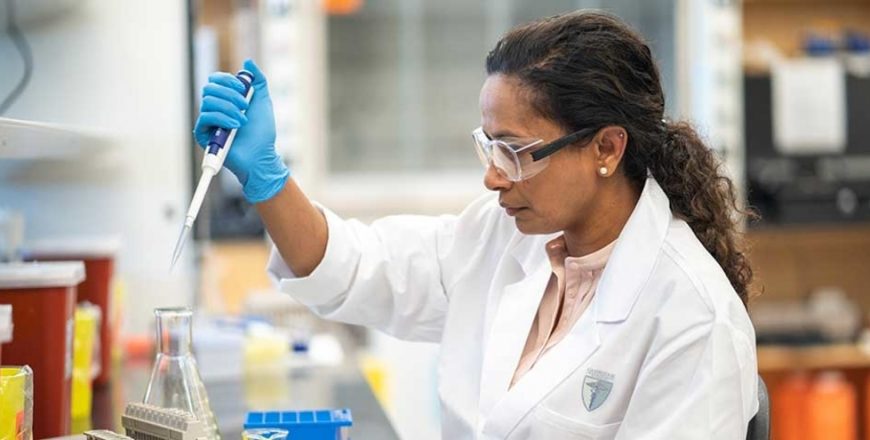
On a laboratory technician apprenticeship course, you’ll help provide routine and one-off testing and technical support in a scientific laboratory environment.
A laboratory technician may work in various sectors, including chemical, primary and secondary pharmaceutical, biotechnology, formulated products, nuclear enterprises, and analytical scientific services.
You will perform regular and one-time laboratory tests and various technical support activities throughout the organisation during your apprenticeship.
Working safely and ethically is vital, and many firms operate in highly regulated environments owing to the need to monitor product quality and safety.
You will work with minimal supervision, assuming responsibility for the quality and accuracy of your work. You will be proactive in resolving problems and identifying possibilities for improvement within the company.
What you’ll learn
On a laboratory technician apprenticeship course, you’ll learn to:
- Utilise resource efficiency concepts such as energy, water, and waste to identify, organise, and utilise resources effectively to complete tasks.
- To provide reliable, accurate data, prepare for and conduct laboratory experiments, tests, or operations according to any required protocols, such as weighing, pipetting, filtering, spectroscopic methods, and chromatography techniques.
- Demonstrate technical competence in the use of specified instruments and equipment.
- Report problems and seek diagnostic help to maintain equipment in good operating order, including calibration as required.
- Expertly complete documentation.
- Keep meticulous records of all laboratory work and results.
- Assist in the creation of reports.
- Use fundamental statistical methods for data visualisation and analysis. Creating diagrams, for example, or calculating the median and standard deviation
- Demonstrate problem-solving skills, such as identifying mistake sources and how to reduce them, such as human error.
- Use widely available software packages and programmes, such as the Microsoft Office suite.
- Identify critical information from scientific sources such as supervisors, books, and so on to create a solution.
- Participate in the continuous improvement of work-related processes and procedures such as workplace organisation techniques, accreditation (e.g., ISO, UKAS), and proficiency testing.
- Analyse data to detect and attract attention to abnormal or unusual results.
Entry requirements
You’ll usually need:
- Depending on the employer, but likely GCSEs or equivalent qualifications or relevant experience.
- Apprentices without level 2 English and maths will need to achieve this level before taking the end-point assessment.
Assessment methods
The End Point Assessment consists of three distinct assessment methods:
- Knowledge Test
- Observation with Questioning
- Structured Interview underpinned by a portfolio of evidence
Duration, level, subjects and potential salary upon completion
- Duration: 24 months
-
Level: 3 – Advanced Apprenticeship
- Relevant school subjects: Science
- Potential salary upon completion: £20,000 per annum
Apprenticeship standard
More information about the Level 3 Laboratory Technician Apprenticeship standard can be found here.
Apprenticeship end point assessment
For more information about the End Point Assessment Process, please read the Institute of Apprenticeships’ information page.
